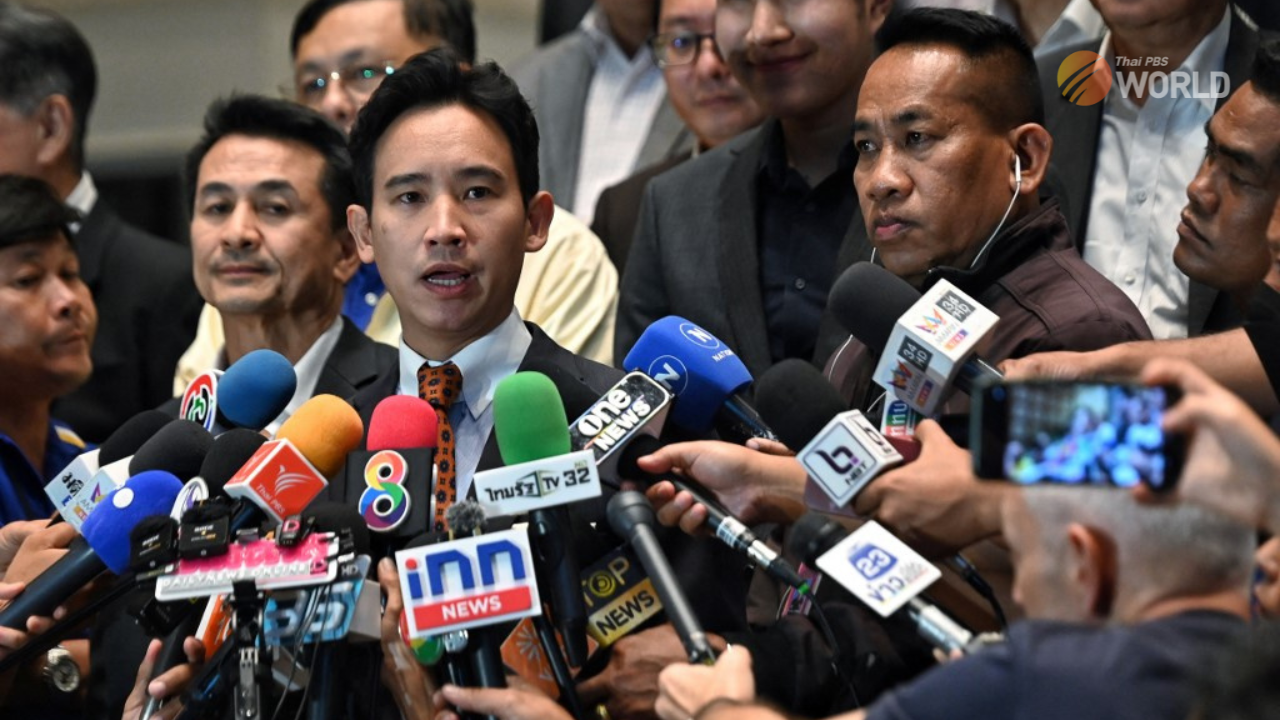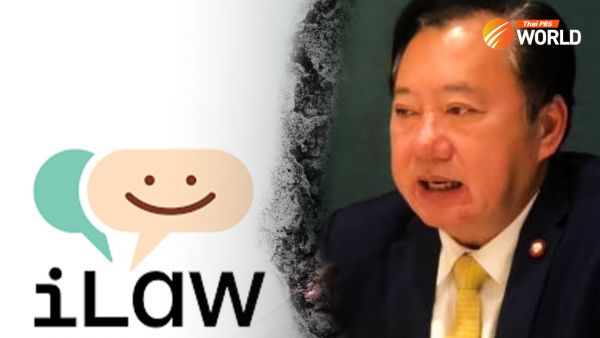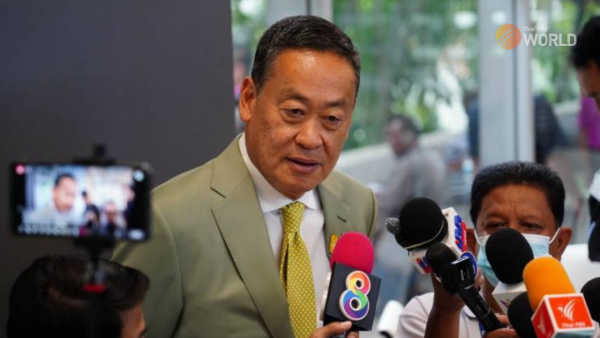What Pita can learn from economic-crisis management to weather the political storm

Political and economic systems are vulnerable to corruption and abuse to favor a few influential persons at the expense of the public at large. The challenge is how to correct and manage it.
First breakthrough
Almost a decade after the 2014 coup, the reins of power in Thailand are still held by a military general, as Gen Prayut Chan-o-cha, the coup leader, continues to head a caretaker government.
Fortunately for the country, the first breakthrough arrived when the great majority of voters rejected military-allied parties in the May 14 general election, giving Move Forward Party and Pheu Thai Party the majority of seats. In alliance with six other parties, the coalition has a combined 312 MPs, a clear majority of the 500 seats in the House of Representatives.
The result of the election came as a surprise to political observers, as the pro-reform Move Forward emerged the single largest party, winning 151 seats. Their performance opens a window of hope for Thailand to regain the full spirit of democracy and revitalize the justice economy that is suffering from the monopolies enjoyed by a few dominant business tycoons.
Considering the numerical strength of the Move Forward-led coalition, the formation of a new government should have been an easy process. But undemocratic insertions in the Constitution sponsored by the coup masterminds have placed a huge barrier. The election of a prime minister needs a total of 375 votes in Parliament, which includes 249 unelected senators, one senator having quit just a day before the vote for prime minister on July 13.
Setback for Pita
Pita Limjaroenrat, the leader of Move Forward Party and the sole candidate for election as Thailand’s 30th’s prime minister, failed to secure the required votes in the first round on July 13. Pita managed to get only 13 votes from the 249 senators, together with 311 from his coalition for a total of 324, well below the required 375.
Reacting to this setback, his party has launched a motion to amend the Constitution seeking to revoke the Senate’s de facto veto power over who can be the new prime minister. Many observers are pessimistic of such a move succeeding, as it will also need about 84 votes from senators. The party executives argued that many senators wanted to free themselves from the undemocratic yoke of choosing the new prime minister.
The counter-offensive by the party seems to be a knee-jerk reaction. Pita and his colleagues appear to be losing their cool, and there is a danger of the process of forming a new government derailing. The party could lose more than it gains by following the path of confrontation, according to many political observers.
Delicate move
Most senators cited Move Forward’s campaign to amend the sensitive Article 112 of the Criminal Code pertaining to the lese majeste law for refusing to approve Pita. The political situation has become a deadlock because Move Forward insists on sticking to its agenda to amend the lese majesty law, even though its coalition allies are not on board on that issue.
The party’s justification of its stance is understandable, as Move Forward had campaigned for reform of the monarchy in the run-up to the election and appeared to have got strong support from its political base, especially among the young generation.
Many observers welcomed the party’s performance in the election, saying it offered hope for the emergence of a new politics based on “rule of law”, which will correct an opaque, if not corrupted, system. And that includes the lese-majeste law, which has been abused by the ultra-right groups.
But it is obvious that the task is not simple, as the first round of voting for the new prime minister has demonstrated. So Pita may need to learn lessons from economic crisis management.
Lessons from economic crises
The Asian financial crisis in 1997 originated in Thailand. Financial institutions at the time were lax in lending and offering high deposit rates as well, while the stock market was full of companies that manipulated their share prices.
The fixed exchange rate system encouraged banks and companies to borrow foreign funds excessively, which were channeled to highly speculative activities in the property and stock markets, leading to an economic bubble.
Eventually, market forces imposed “market discipline” on Thailand’s market-oriented economy, leading to the baht crash on July 2, 1997, creating a wave of bankruptcies of financial institutions and private companies. The economy came to a standstill and the country had to approach the International Monetary Fund (IMF), which provided short-term lending to shore up the collapsing economy.
At first, the IMF wanted to boost confidence in the management of the economy by imposing an austerity program, such as government spending cuts and raising the value-added tax from 7 percent to 10 percent. But harsh actions with the good intention of disciplining the management of the economy worsened the situation. It was because the economic collapse had already brought economic activities to a standstill and the harsh austerity program prescribed by the IMF drove the economy even deeper into the abyss.
Therefore, the IMF and the Thai government had to abandon the proposed tax hike and other austerity measures. The relaxation in the fiscal policy combined with the weakening baht paved the way for the recovery of exports and Thailand’s economy as a whole.
The lesson from this is that you cannot impose too much discipline on a fragile system outright; you need some flexible actions in order to correct it.
Poll respondents want Pita to be re-nominated until he is elected PM
Old Thai politics
“We, senators, cannot accept the Move Forward stance on the lese majeste law as it also affects national security,” said Sangsit Piriyarangsan, one of 159 senators who abstained in the first round of voting for Pita.
Some observers and members of the coalition also want Move Forward to soften its stance, to help move the country forward.
Some attribute a generation gap between the senior and younger generations for their different perspectives about the lese majeste law and national security. The younger generation may want to see a modern monarchy and a new meaning of national security, while the older generation wants to preserve traditional values.
A lesson from Fed chief
The US Federal Reserve (Fed), under the leadership of chairman Jerome Powell, has aggressively increased interest rates 10 times since last year in order to tame persisting high inflation, while critics fear that the Fed’s actions could lead the economy into recession.
The Fed’s executives at their meeting in June paused the interest rate hike, saying they wanted to see the impact of previous rate hikes making their way through the economy.
In Thailand, efforts have been made for several years to amend the lese-majeste law, including the effort by Pita who explained in the recent Parliament session that the law needed to be amended in order to defend the people’s right to freedom of expression and to improve the relationship between the people and the monarchy.
However, many MPs and senators were not convinced. This suggests that Thai society may need more time to weigh the pros and cons of the proposed amendment, in the same way as the US Fed is waiting to see the impact of its previous actions.
Peaceful transfer of power?
Thailand’s political deadlock could lead to a deeper crisis. Usually, in a democracy, there is a peaceful transfer of power. Had the senators respected the people’s mandate and voted in line with the election outcome to approve Pita on June 13, Thailand could claim to have achieved a smooth transfer of power.
Asked whether the senators had taken into account the principle of peaceful transfer of power, Sangsit replied that “many factors are not under the control of senators, so other concerned parties also have to make contributions”.
Will a softer stance help?
Aside from politicians, some have called for Move Forward to step back on the lese-majeste law amendment, but others are worried that senators would find other reasons to block Pita’s election.
“It would not help. The senators would find other reasons to block Pita,” said Titipol Phakdeewanich, dean of Ubon Ratchatanee University’s Political Science Faculty. Many observers still believe it would be in Pita’s interest to make a compromise.
By Thai PBS World’s Business Desk






